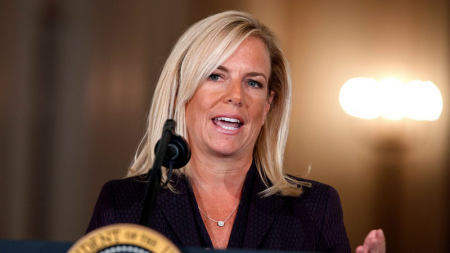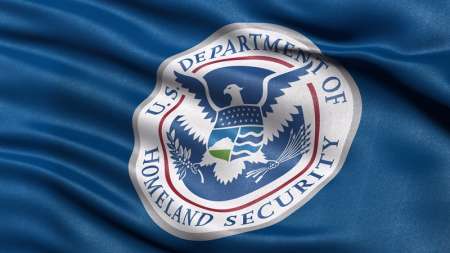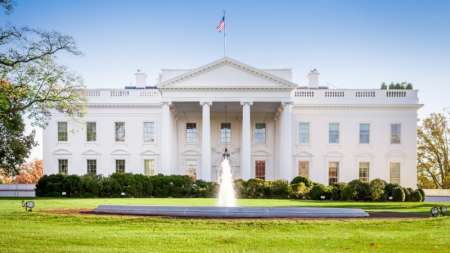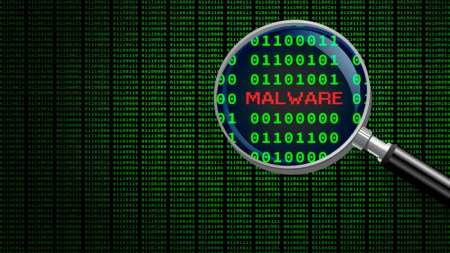Federal government agencies must work on improving mobile device security, as people are increasingly attached to their devices and attackers can wield a variety of new threats that can expose agencies’ passwords, personal information and networks, industry officials said this week. […]
The flagship model for organizational cybersecurity policies just got a new coat of paint. The National Institute of Standards and Technology (NIST) on April 16 released version 1.1 of its Framework for Improving Critical Infrastructure Cybersecurity , which updates the agency’s original voluntary cybersecurity framework for critical infrastructure sectors issued in 2014. […]
Because spending plans make for informative policy documents, an April markup of the 2019 National Defense Authorization Act (NDAA) offers an outline of the Department of Defense’s plans for its cyber operations and the development of new technologies. […]
A new report from the Government Accountability Office (GAO) this week raises concerns that the National Aeronautics and Space Administration (NASA) isn’t properly protecting its IT systems. The agency spends about $1.5 billion annually on IT investments to support its missions. […]
The Department of Justice (DoJ) announced today that a Federal jury convicted Ruslans Bondars, a resident of Latvia, on three counts related to his operation of “Scan4you,” an online counter-antivirus service. […]
Immediately following National Security Advisor John Bolton’s decision to eliminate the post of one of the President’s top cybersecurity advisors, lawmakers pushed back with legislation aimed at reinstating the position and requiring Senate confirmation for it under a newly established National Office for Cyberspace. […]
Department of Homeland Security (DHS) Secretary Kirstjen Nielsen emphasized at a Senate Homeland Security and Governmental Affairs Committee hearing this week the importance of shoring up United States cyber defenses, and said that effort would be helped by adequate funding and reorganization of a key DHS department. […]
This month marks the first anniversary of President Trump signing his cyber executive order (EO), formally titled the Presidential Executive Order on Strengthening the Cybersecurity of Federal Networks and Critical Infrastructure. […]
The Department of Homeland Security (DHS) today unveiled a new five-pronged strategy aimed at managing “national cyber risk,” and in particular, U.S. “cyber and critical infrastructure security.” […]
John Bolton, President Trump’s national security adviser, has eliminated the White House cybersecurity coordinator position. […]
In a previously announced move, the Pentagon elevated the U.S. Cyber Command to a full unified command. This reflects the universal role cyber operations–and potential cyber threats–have come to play across the range of military activities, and how relatively quickly virtual technologies have changed the game. […]
Seventy percent of energy industry professionals are concerned that a successful cyberattack against energy or oil and gas companies could cause a catastrophic failure, according to a survey released Wednesday. […]
While members of Congress discussed the nationwide technical skills gap at a hearing on Wednesday, tech-industry advocates on Capitol Hill looked for ways to reduce the cybersecurity sector’s gender gap. […]
John Bolton, President Trump’s national security adviser, may not be hunting for a replacement for Rob Joyce, the current White House cybersecurity coordinator, who previously announced he would leave his post and return to the National Security Agency later this month. […]
Artificial intelligence (AI) could increase global GDP by $15.7 trillion by 2030, according to PricewaterhouseCoopers. The prevalence of AI in modern society is growing at a rapid pace – and the Federal government needs to keep up. […]
A new government-wide strategic plan on Category Management covering FY18-FY20 and released in late April aligns with the President’s Management Agenda and declares the Enterprise Infrastructure Solutions contracting vehicle one of its key IT components. […]
Malware-pushing criminals are no longer finding as much profit in email-based exploits, but the National Institute of Standards and Technology says cyber-crime perpetrators may find that easier lines of attack lie in infiltrating social media platforms. […]
Military cybersecurity officials said at MeriTalk’s Tenable GovEdge 2018 event on May 3 that they can focus more on taking the fight to adversaries if the private sector can continue to provide the military with strong network defense technologies. […]
Defense issues expert Peter Singer warned this week that cybersecurity deterrence strategies put in place over the past decade are collapsing, and that the government’s response to security strategies needs to be rethought. […]
A Federal CISO handbook is due out soon from the CISO Council, said Jeff Wagner, Acting Chief Information Security Officer at the Office of Personnel Management. The new guidance aims to cut down on technical language barriers and standardize compliance formatting across the Federal enterprise. […]
It’s no secret that Chinese companies are major suppliers to U.S. technology companies that serve the Federal government, and a report issued last month says the Chinese government is leveraging that manufacturing capability to create significant security risks across the U.S. Federal enterprise. […]
The Department of Homeland Security is providing weekly vulnerability scorecards to 106 Federal agencies every Monday, said Rob Karas, the agency’s Director of National Cybersecurity Assessments and Technical Services-NCATS, at the Tenable GovEdge 2018 Conference Thursday. […]
You can hear the clatter from the White House as it hammers out the details of a long-awaited national cyber security strategy. But, the Department of Defense (DoD) cyber policy strategists are writing out advice to keep Federal agencies safe from hackers’ webs today. […]
Tenable announced that it recently discovered a critical remote code execution vulnerability in two Schneider Electric applications used in manufacturing, oil and gas, water, automation, and wind and solar power facilities. […]
A gathering of crows is called a murder. A bunch of kangaroos is called a mob. And a gathering of IGs is–no, not a nuisance–it’s called CIGIE–the Council of Inspectors General on Integrity and Efficiency. And, CIGIE’s annual Top Management and Performance Challenges–TPMC report–boiled down IG reports from 61 different agencies–and leads with IT and security management issues across the government. […]
Users have the reputation of being the weakest link in cybersecurity, because of their potential to undo the most fortified cyber setup with an exposed password or absent-minded click in a phishing email. They’re the guy who forgets to lock one door in an otherwise secure building, or the kid who unwittingly reveals where the family keeps an emergency house key. […]
Cometh another Congressional hearing on the Department of Homeland Security–DHS–and its ability to lock down the entire nation’s cyber infrastructure. Cometh more finger pointing. The Government Accountability Office–GAO–released a report on DHS’ uphill battle for cybersecurity. With no ostensible end to this job, it’s easy to tell Sisyphus to push harder. […]
Machine learning innovation is kicking into high gear. Investment in this field and data science increased 9.3 percent in 2016 to $2.4 billion, according to Gartner. On top of that, the Federal government is increasing its focus on machine learning, with the MGT Act, Technology Modernization Fund, and the President’s Management Agenda all supporting transformation efforts. […]
Conventional wisdom is that it takes a fairly long time to detect a cybersecurity breach. Typically, most research suggests, it takes two to three months, possibly longer. That may not be the case anymore, though, according to a recent report. […]
The Government Accountability Office–GAO–released a report exploring how Medicare beneficiary data are being shared with external organizations. When caring for patient record data, it seems government needs a better bedside manner and more. […]





















